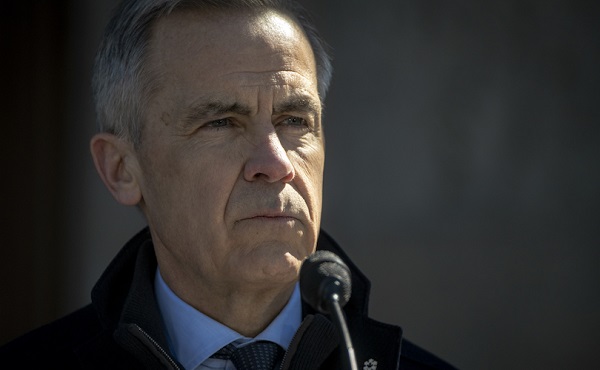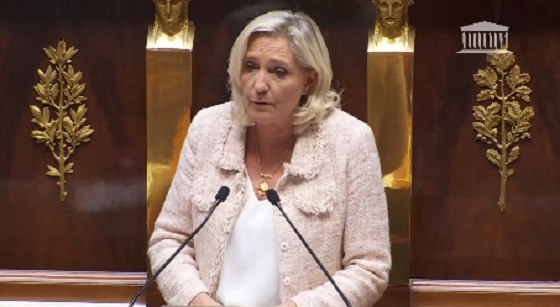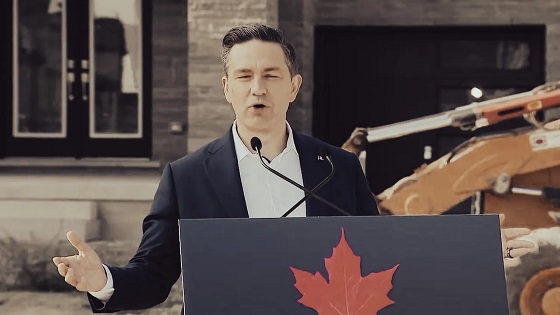Business
The Great Wealth Transfer – Billions To Change Hands By 2026

Here comes the boom.
What is ‘The Great Wealth Transfer’?
This term has been coined by several major wealth managers across North America; referring to the tremendous amount of wealth that will be transferred to younger generations over the next decade. Wealth amassed by baby boomers will eventually be passed down to their families or beneficiaries, typically with the aid of a trusted wealth manager or financial advisor.
Similar in a way to climate change, when we visit some of the data that has been reported in both Canada and the US, this issue seems to be far more pressing than most people are aware. Depending on the publication, the exact amount of wealth that will be transferred is questionable. Cited in Forbes, a report done by the Coldwell Banker Global Luxury® program and WealthEngine claim that $68 Trillion will change hands in the US by 2030.
We spoke with Gwen Becker and Devin St. Louis, two VP’s, Portfolio Managers and Wealth Advisors for RBC Wealth Management, offering their expert insight into the industry and the vast amount of wealth that is changing hands in Canada.
According to RBC Wealth Management, their numbers in terms of the wealth transfer report $150 billion is set to change hands by 2026. The industry as a whole is at the forefront of this generational shift, whereas a trusted advisor can onboard younger family members to ensure the highest level of support through the process. Gwen offers her perspective:
“Certainly just around the corner; something that we are definitely paying attention to. My practice has always been very relationship-driven. It has been my privilege to advise many of my clients for decades. I have been intentional to welcome and include multiple generations of the same family. I advise grandparents who are now in their 90s, to which the majority of their children are my clients and even beginning to onboard grandchildren.”
This is an example of what is referred to as multi-generational estate planning. Being in the midst of the ‘great transfer of wealth’, this type of planning is crucial for advisors to implement early so they can continue to support the same family in the future. According to the Canadian Financial Capability Survey conducted in 2019, 51% of Canadians over the age of 65 will refer to a financial advisor to seek literacy and support. Contrary to that, Canadians aged 18-34 show that 51% are more likely to use online resources to aid in their financial literacy.
Devin offers his perspective on how the importance of family legacy plays a role when an advisor poses this question: What is your wealth for?
“If you sat down with a couple 10 years ago, they may say, when I pass away, whatever wealth is left can be distributed evenly amongst our children. That has changed quite a lot now because elder family members are now more concerned about how their wealth is passed on to the next generation. Onboarding grandchildren can ensure that a family legacy that receives their wealth, uses it to benefit their family and their community.”
An important question to consider. Clearly there is a shift in attitude towards having a family legacy live on through younger generations of a family. Evident that having the support of a financial advisor or wealth manager not only ensures the most efficient use of your money and assets but also ensures financial stability for your family in their future.
If we revisit the above study in how a younger demographic is more likely to utilize online resources, interesting how a more digitally inclined audience will be receptive to advisors. Boiling down to how millennials and younger age groups will perceive wealth management if those in that space fail to offer their services through online communication.
Devin agrees that RBC is uniquely positioned for this digital shift:
“interesting that everybody had to transform their processes online through this COVID-19 pandemic. Every company has been forced to step up their technology means, RBC has definitely risen to that occasion. RBC has adapted quickly, improving a great technology base that already existed. I don’t perceive it at this point to be a challenge. I believe we have the right focus. I think it’ll be a good transition for us.”
Gwen continues:
“I do agree that RBC is very well positioned. The younger generations below millennials that would eventually take over some of this wealth carries some challenges. How does that age demographic think, and what are their expectations of wealth management or financial advisors? It is difficult to understand what that generation will expect out of digital advisors. Estate planning matters, and it will always be tied to you knowing the family, it’s a relationship business”
Consider that RBC Wealth Management oversees $1.05 trillion globally under their administration, has over 4,800 professionals to serve their clients and was the recipient of the highest-ranking bank-owned investment brokerage by the 2020 Investment Executive Brokerage Report Card, safe to say their decades of professionalism, expertise and ‘get it done’ attitude speaks for itself.
So, what does this mean for younger members of families who may not understand the field of wealth management?
Starting the conversation early
Whether you are the elder family member who has their financial ‘quarterback’ preparing their estate to change hands or are younger family members who may be the beneficiary of wealth in the near future, starting the conversation amongst family members early is important for the process to be successful. Considering that some possessions have more than just monetary value, but an emotional tie to the family legacy can be a difficult asset to distribute evenly. Of course, it can be a tough conversation to have, it may involve discussing the passing away of a loved one or even setting a plan to cover future expenses. Gwen mentions:
“I encourage my clients to have open conversations with their children while they are alive so that their intentions are clear. Depending on the dynamics of the family, things such as an annual family meeting with a beneficiary can be effective once it’s put in place. If they are not comfortable leading that conversation, bring a trusted adviser to the table to be impartial and logical.”
There is no way to know what ramifications will come of this ‘great transfer of wealth’. It may be that we see the resurgence of a strong bull market in the near future, we may see new tech innovation that we cannot yet grasp or new business investments that continue to disrupt traditional processes. Only time will tell.
For more stories, visit Todayville Calgary
Alberta
Alberta updates TIER system: Businesses can direct compliance payments to on-site technologies

Modernizing TIER to secure tomorrow |
Alberta is seeking to update the Technology Innovation and Emissions Reduction (TIER) system to drive investment at large industrial facilities, helping companies stay competitive and protecting jobs.
This fall, Alberta’s government will introduce updates to the TIER system that would empower Alberta industries to invest in on-site emissions reduction technology that works for their specific businesses. Making Alberta’s highly successful TIER system even more effective and flexible will make industries more globally competitive while maintaining Alberta’s leadership in emissions reductions.
“TIER has always been about Alberta leading the way – proving to the world that it’s possible to increase energy production, grow the economy and lower emissions at the same time. These amendments build on that success by giving industry the certainty and flexibility they need to invest right here at home. We know this work is not finished. We will continue to press the federal government to match Alberta’s leadership with realistic policies and timelines so that together we can keep building an economy that is strong and ready for the future.”
“We are committed to ensuring our industry remains competitive and can once again bring in the capital investment needed to deliver safe, affordable and reliable energy to Canadians and the rest of the world. Enabling them to reinvest their dollars into their own facilities will be good for the environment while growing our economy and creating jobs.”
“TIER has played a critical role in helping Alberta energy be the most responsibly produced energy in the world. These changes will further allow our major energy companies to increase production and finance new world-leading emission reduction efforts consistent with Alberta’s Emissions Reduction and Energy Development Plan.”
Proposed updates to the TIER system include:
- Recognizing on-site emissions reduction investments as a new way for industry to comply with the TIER system in addition to the current options available, which include paying into the TIER fund or buying credits. This would reward companies for investing directly in emissions reduction technology that encourages innovation, supports local jobs and reduces emissions.
- Allowing smaller facilities that currently participate in the TIER system to leave or opt out for 2025 to reduce costs and red tape. Smaller facilities below the regulatory emissions threshold can face disproportionate compliance costs under the TIER system, which is mainly designed for large facilities. This change would help smaller industries save money and redirect resources into emissions reduction investments or other operational improvements for more cost savings. It offers flexibility, especially for small manufacturers and rural operations, which protects jobs across Alberta.
These changes will position Alberta, once again, as a world leader ready to meet the challenges and realities of shifting global markets, increased competition and trade uncertainty.
“We are pleased to see the Government of Alberta is taking steps to improve competitiveness of climate policy. Today’s announcement recognizes industry concerns around competitiveness and signals that the province is moving forward to support emissions reduction in a way that helps companies reduce emissions, compete for investment, and create jobs for Albertans. EPAC believes provinces are best positioned to lead on climate policy, and we look forward to continued work with Alberta.”
“Pathways Alliance appreciates the Government of Alberta’s efforts to support the oil sands industry and protect jobs. Direct investment through the TIER system is expected to encourage continued investment in emission reduction technologies, and advance innovative infrastructure. The oil sands industry looks forward to ongoing work with governments to strengthen global competitiveness and attract investment.”
Alberta’s economy is growing and emissions are declining thanks to the province’s common-sense approach. Alberta’s government will continue to work with industry to protect jobs, strengthen competitiveness and maintain Alberta’s position as the destination of choice for global investment.
Quick facts
- Alberta’s TIER system was established in 2007 and was the first of its kind in North America.
- Currently the TIER system includes about 60 per cent of the province’s total emissions, helping Alberta’s industrial facilities find innovative ways to reduce emissions and invest in technology to stay competitive, save money and create jobs.
- The TIER Regulation requires any facility that emits 100,000 tonnes or more of emissions in a year to meet annual emissions reductions using either a facility-specific or a sector benchmark approach.
- Under the current system, regulated facilities can comply using credits (carbon offsets, emission performance credits or sequestration tonnes) or pay into the TIER fund at $95 per tonne of emissions.
- Sectors regulated under the TIER system include oil and gas, oil sands mining, electricity, forestry, chemicals, fertilizers, minerals, food processing and waste.
- Since 2019, Alberta has invested $1.6 billion from the TIER fund into geothermal, hydrogen, energy storage, methane reduction, carbon capture and other technology projects, reducing approximately 70 million tonnes of emissions by 2030 and supporting about 21,000 jobs across the province.
Related information
2025 Federal Election
Post election report indicates Canadian elections are becoming harder to secure

Chief Electoral Officer Stéphane Perrault highlights strong participation and secure voting, but admits minority politics, rising costs, and administrative pressures are testing the system’s limits.
Monday in Ottawa, Stéphane Perrault, Canada’s Chief Electoral Officer, delivered a long press conference on April’s federal election. It was supposed to be a victory lap, record turnout, record early voting, a secure process. But if you listened closely, you heard something else: an admission that Canada’s election machinery is faltering, stretched thin by a system politicians refuse to fix.
Perrault touted the highest turnout in 30 years, 69 percent of eligible voters, nearly 20 million Canadians. Almost half of those ballots were cast before election day, a dramatic shift in how citizens take part in democracy.
“Twenty years ago, less than 7% voted early. This year, nearly half did,” Perrault told reporters. “Our system may have reached its limit.”
That’s the core problem. The system was built for one decisive day, not weeks of advance voting spread across campuses, long-term care homes, mail-in ballots, and local Elections Canada offices. It’s no longer a single event; it’s an extended process that stretches the capacity of staff, polling locations, and administration.
Perrault admitted bluntly that the 36-day writ period, the time between when an election is called and when the vote happens, may no longer be workable. “If we don’t have a fixed date election, the current time frame does not allow for the kind of service preparations that is required,” he said.
And this is where politics collides with logistics. Canada is once again under a minority government, which means an election can be triggered at almost any moment. A non-confidence vote in the House of Commons, where opposition parties withdraw support from the government, can bring down Parliament in an instant. That’s not a flaw in the system; it’s how parliamentary democracy works. But it leaves Elections Canada on permanent standby, forced to prepare for a snap election without knowing when the writ will drop.
The result? Sixty percent of voter information cards were mailed late this year because Elections Canada couldn’t finalize leases for polling stations on time. Imagine that, more than half the country got their voting information delayed because the system is clogged. And that’s when everything is supposedly working.
The April election cost an estimated $570 million, almost identical to 2021 in today’s dollars. But here’s the kicker: Elections Canada also spent $203 million just to stay ready during three years of minority Parliament. That’s not democracy on the cheap. That’s bureaucracy on retainer.
Perrault admitted as much: “We had a much longer readiness period. That’s the reality of minority governments.”
No Foreign Interference… But Plenty of ‘Misinformation’
Canada’s top election official wanted to make something perfectly clear: “There were no acts of foreign interference targeting the administration of the electoral process.” That’s the line. And it’s a good one… reassuring, simple, the kind of phrase meant to make headlines and calm nerves.
But listen closely to the wording. He didn’t say there was no interference at all. He said none of it targeted the administration of the vote. Which raises the obvious question: what interference did occur, and who was behind it?
Perrault admitted there was “more volume than ever” of misinformation circulating during the 2025 election. He listed the greatest hits: rumors that Elections Canada gives voters pencils so ballots can be erased, or claims that non-citizens were voting. These are hardly new — they’ve appeared in the U.S. and in Europe too. The difference, he said, is scale. In 2025, Canadians saw those narratives across more channels, more platforms, more communities than ever before.
This is where things get interesting. Because the way Perrault framed it wasn’t that a rogue actor or a foreign intelligence service was pushing disinformation. He was blunt: this was a domestic problem as much as anything else. In his words, “whether foreign or not,” manipulation of information poses the “single biggest risk to our democracy.”
Perrault insists the real danger isn’t foreign hackers or ballot-stuffing but Canadians themselves, ordinary people raising questions online. “Information manipulation, whether foreign or not, poses the single biggest risk to our democracy,” he said.
Well, maybe he should look in the mirror. If Canadians are skeptical of the system, maybe it’s because the people running it haven’t done enough to earn their trust. It took years for Ottawa to even acknowledge the obvious , that foreign actors were meddling in our politics long before this election. Endless commissions and closed-door reports later, we’re told to stop asking questions and accept that everything is secure.
Meanwhile, what gets fast-tracked? Not a comprehensive fix to protect our democracy, but a criminal investigation into a journalist. Keean Bexte, co-founder of JUNO News, is facing prosecution under Section 91(1) of the Canada Elections Act for his reporting on allegations against Liberal candidate Thomas Keeper. The maximum penalty? A $50,000 fine and up to five years in prison. His reporting, incidentally, was sourced, corroborated, and so credible that the Liberal Party quietly dropped Keeper from its candidate list.
If people doubt the system, it isn’t because they’re gullible or “misinformed.” It’s because the government has treated transparency as an afterthought and accountability as an inconvenience. And Perrault knows it. Canadians aren’t children to be scolded for asking questions, they’re citizens who expect straight answers.
But instead of fixing the cracks in the system, Ottawa points the finger at the public. Instead of rebuilding trust, they prosecute journalists.
You don’t restore faith in democracy by threatening reporters with five years in prison. You do it by showing, quickly and openly, that elections are beyond reproach. Until then, spare us the lectures about “misinformation.” Canadians can see exactly where the problem lies, and it isn’t with them.
The Takeaway
Of course, they’re patting themselves on the back. Record turnout, no servers hacked, the trains ran mostly on time. Fine. But what they don’t want to admit is that the system barely held together. It was propped up by 230,000 temporary workers, leases signed at the last minute, and hundreds of millions spent just to keep the lights on. That’s not stability. That’s triage.
And then there’s the lecturing tone. Perrault tells us the real threat isn’t incompetence in Ottawa, it’s you, Canadians “sharing misinformation.” Excuse me? Canadians asking questions about their elections aren’t a threat to democracy, they are democracy. If the government can’t handle people poking holes in its story, maybe the problem isn’t the questions, maybe it’s the answers.
So yes, on paper, the 2025 election looked like a triumph. But listen closely and you hear the sound of a system cracking under pressure, led by officials more interested in controlling the narrative than earning your trust. And when the people running your elections think the real danger is the voters themselves? That’s when you know the elastic isn’t just stretched. It’s about to snap.
Subscribe to The Opposition with Dan Knight .
For the full experience, upgrade your subscription.
-

 Artificial Intelligence2 days ago
Artificial Intelligence2 days agoWhat are data centers and why do they matter?
-

 Daily Caller2 days ago
Daily Caller2 days agoTrump Admin To Push UN Overhaul Of ‘Haphazard And Chaotic’ Refugee Policy
-

 Business1 day ago
Business1 day agoCarney’s Ethics Test: Opposition MP’s To Challenge Prime Minister’s Financial Ties to China
-

 Business2 days ago
Business2 days agoCarney Admits Deficit Will Top $61.9 Billion, Unveils New Housing Bureaucracy
-

 Business1 day ago
Business1 day agoAttrition doesn’t go far enough, taxpayers need real cuts
-

 Business1 day ago
Business1 day agoCarney government’s housing GST rebate doesn’t go far enough
-

 Media1 day ago
Media1 day agoCancel culture wins ultimate victory as murder of Charlie Kirk ghoulishly celebrated by radical Left, media included
-

 Alberta1 day ago
Alberta1 day agoBreak the Fences, Keep the Frontier








